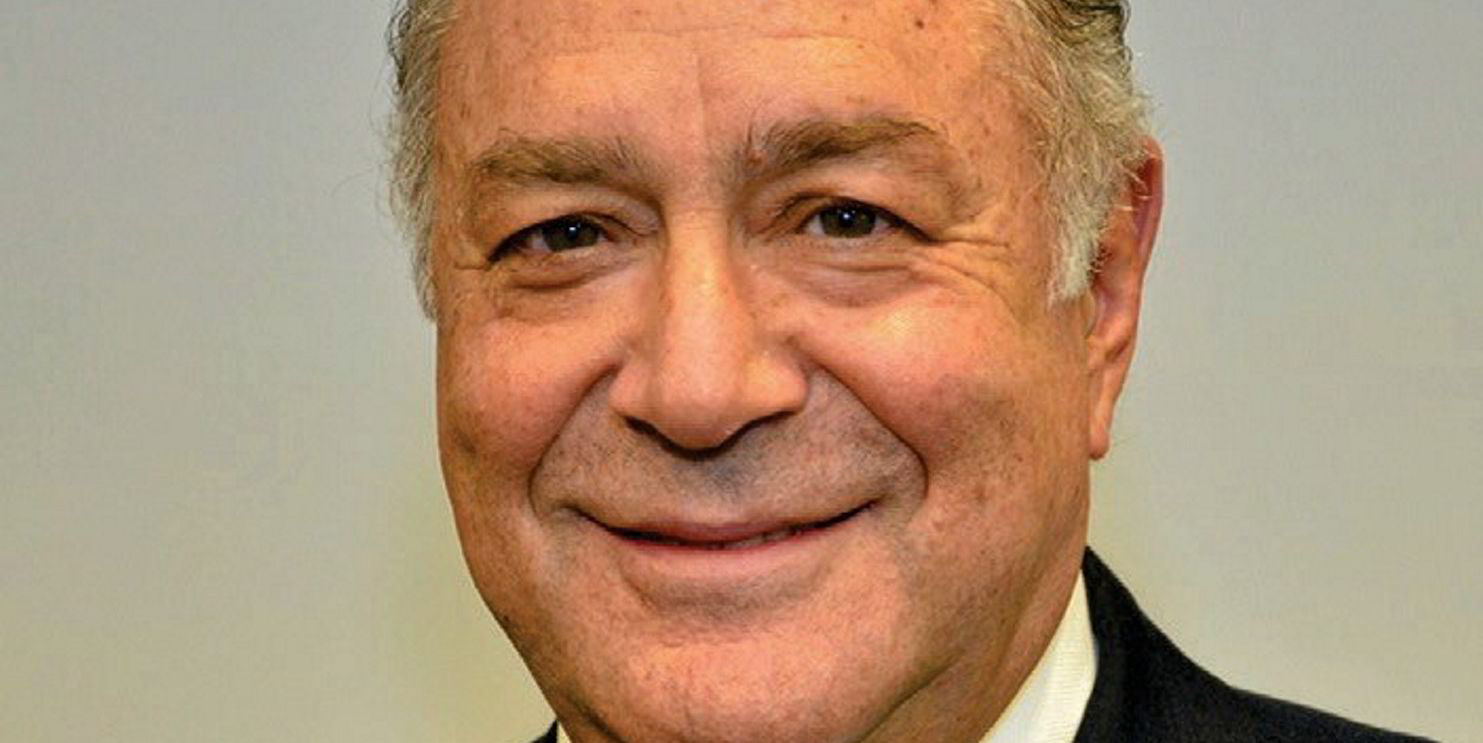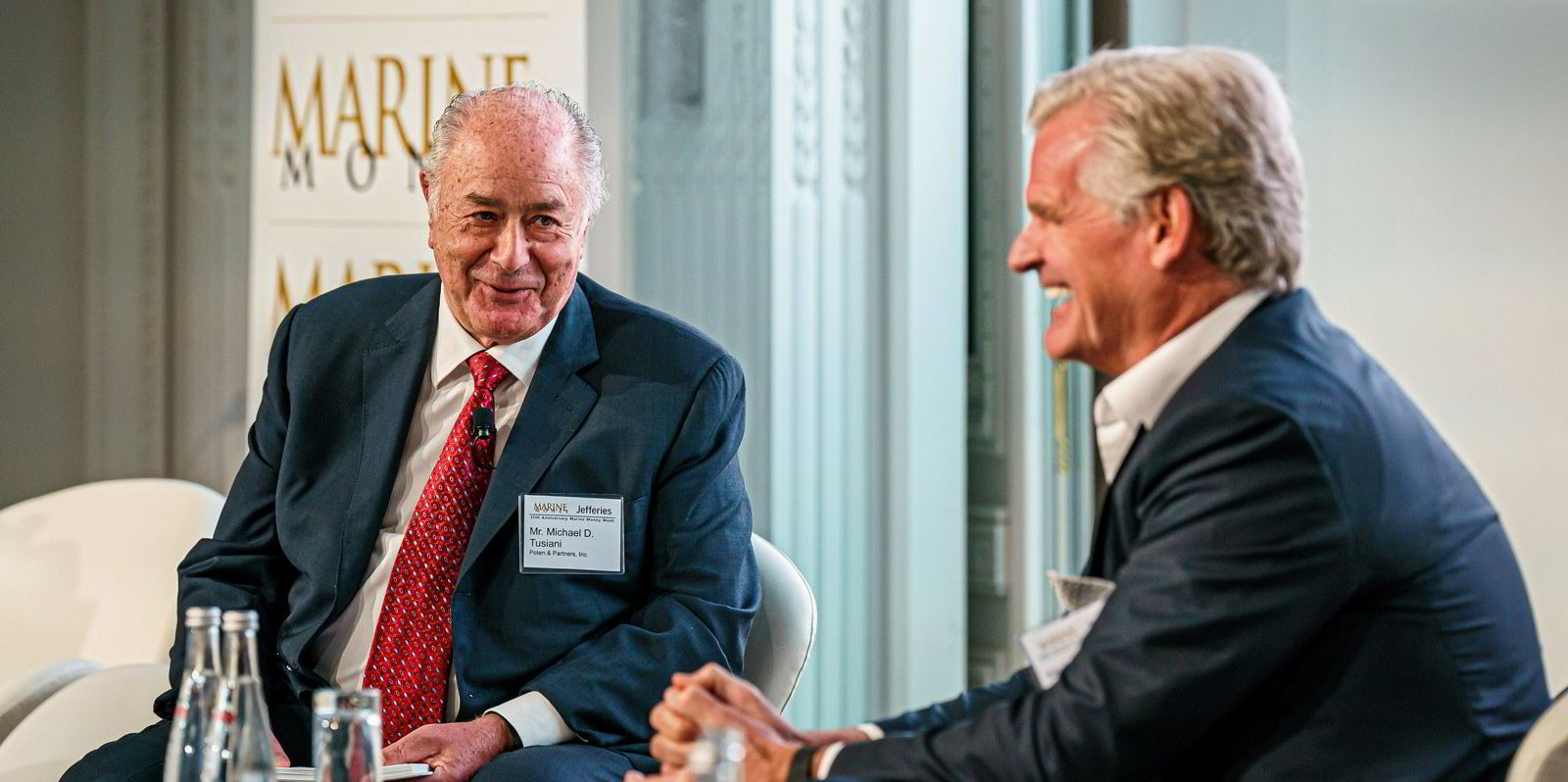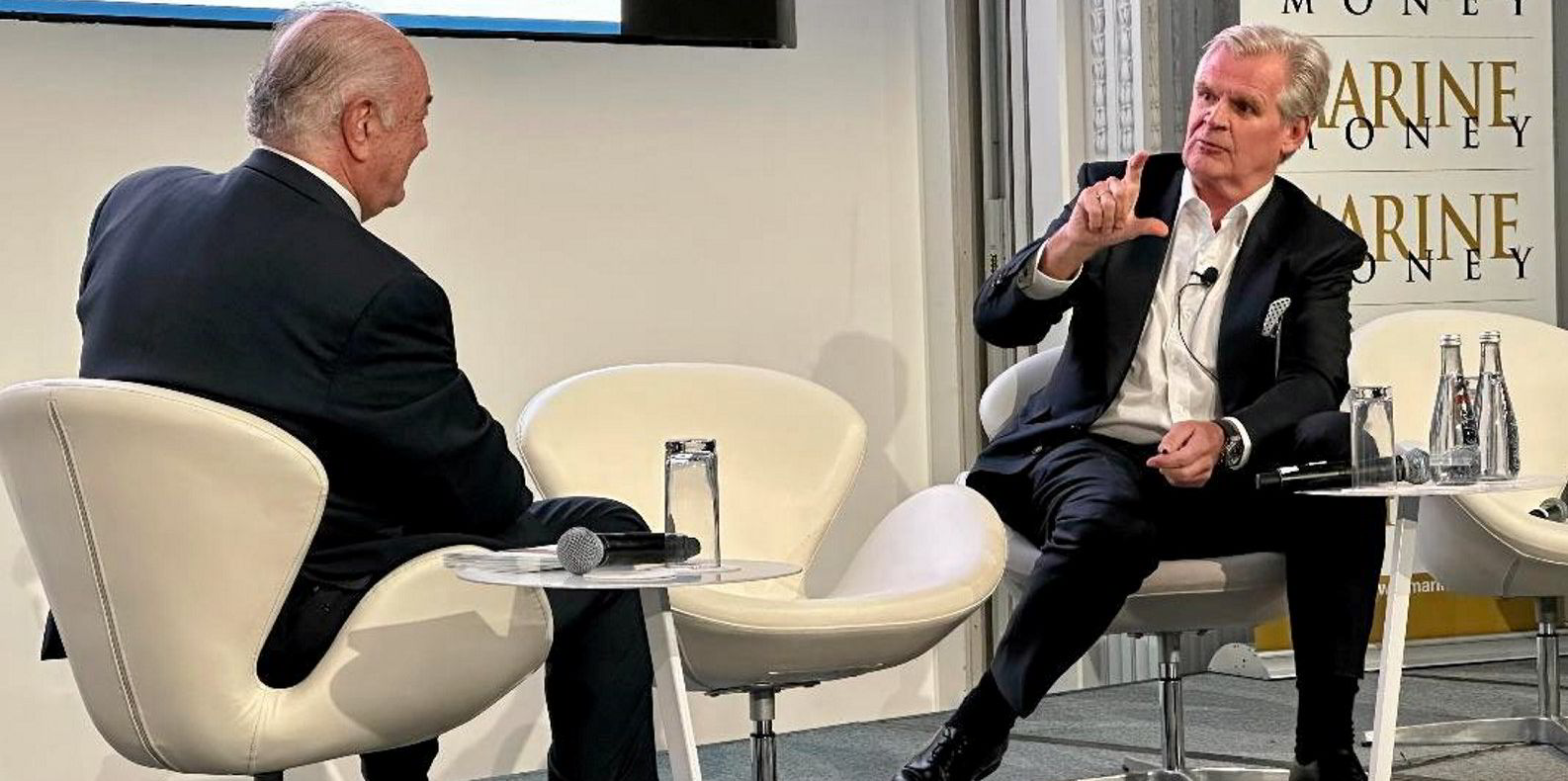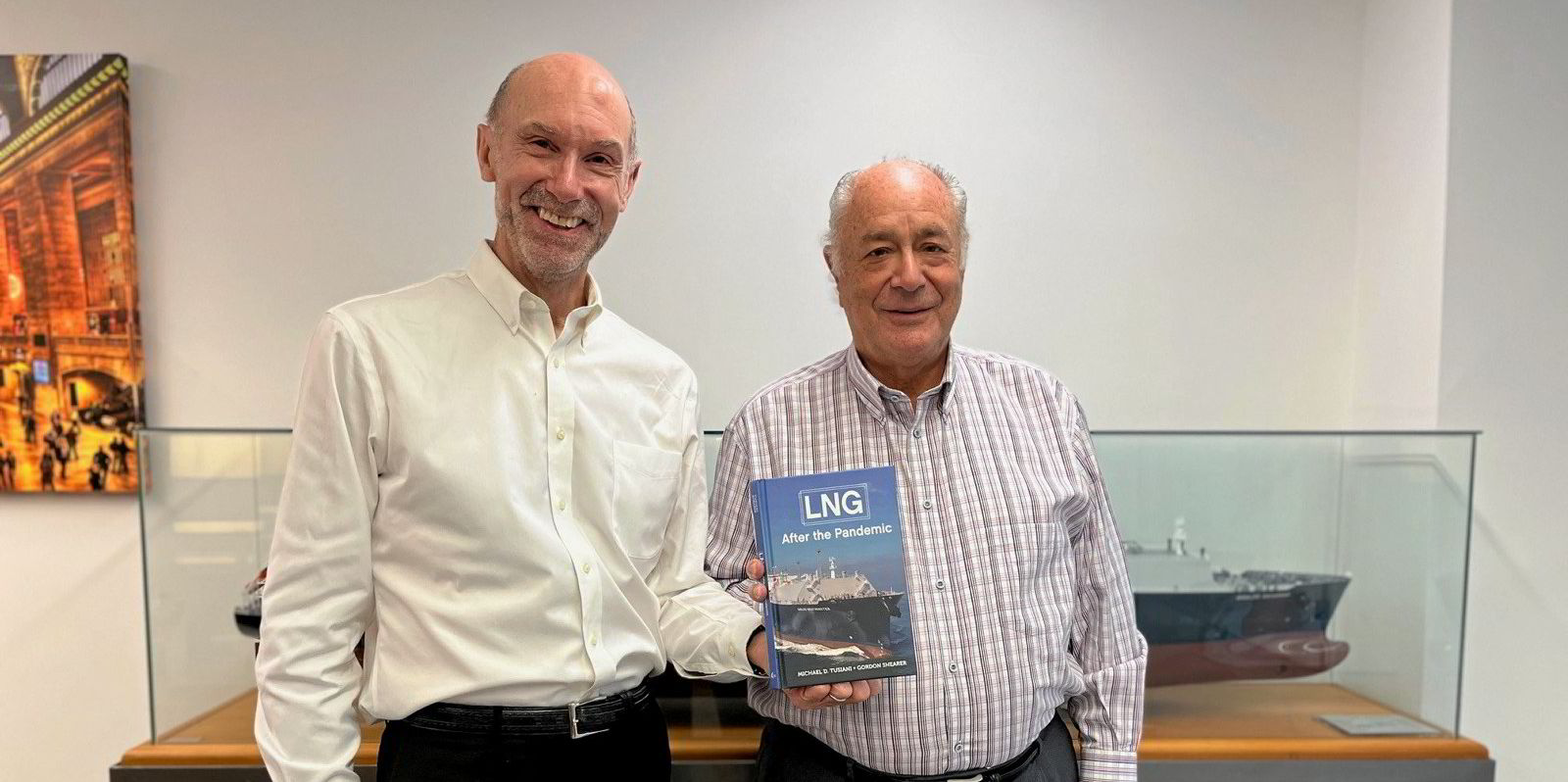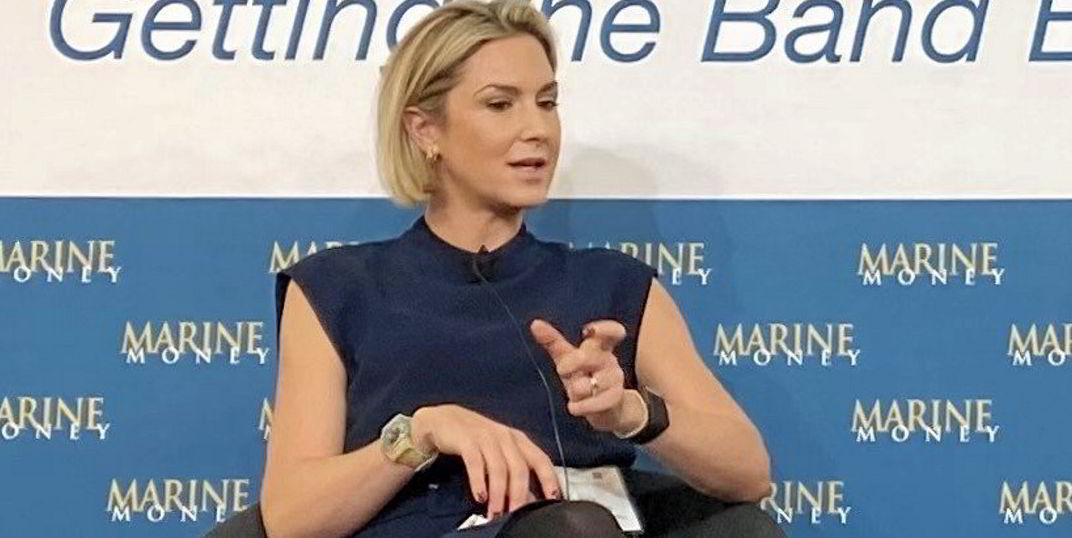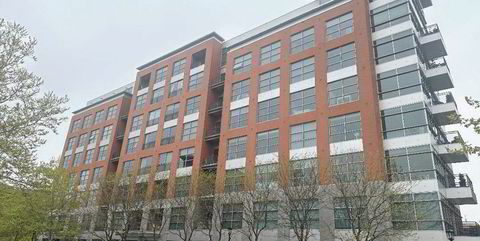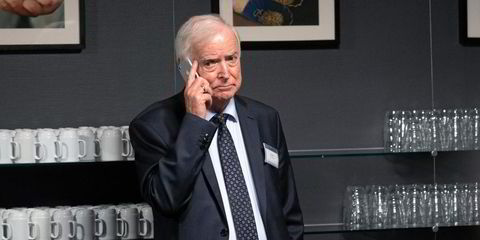Michael Tusiani was in his office in midtown Manhattan putting the finishing touches on a special speech when TradeWinds caught up with him one afternoon this week.
At age 75, he still makes the commute from his home on the upper east side of Manhattan three or four times a week in his role as Poten & Partners’ chairman emeritus.
“It’s a 10-minute ride and a 25-minute walk – in good weather, I try to walk,” Tusiani said.
“I come in at 10 and I leave at 3:30 or 4. I also try to join our internal Zoom calls as often as a I can. You have to be current to have any value.”
Tusiani still has some value these days, particularly in the eyes of the Connecticut Maritime Association, which kicks off its annual conference and trade show in Stamford today.
The CMA has tapped Tusiani to receive the annual Commodore Award at a gala dinner on Thursday night.
It’s an honour that traditionally has gone to shipowners, and it’s the first time a shipbroker has been chosen to wear the iconic bicorn hat.
“Mr Tusiani is no mere broker; he is among a small group of thought leaders who has combined expertise across shipping, commodity brokerage, research energy, and consulting in a vertically integrated firm,” said CMA president Sandi Ennor in announcing the award.
It’s preparing for this occasion that has Tusiani tinkering at his office one afternoon, trying to get the details of his acceptance speech right.
“They told me to be funny but polite, which I’ll try to do,” he said with a chuckle.
If past is prologue, Tusiani will have plenty more to say.
For besides his role in taking traditional tanker broking house Poten to new horizons, Tusiani has been a prized speaker and moderator on the conference circuit and the author of six books, the most recent this year’s history of the Qatari energy industry.
Tusiani joined the broking house in 1973 after starting his career as an economist with Naess Shipping.
He led Poten’s diversification into areas like energy commodities, LNG, LPG, offshore and financial services over the next decade.
He ultimately became owner of the firm, and in 1983 was named chairman and chief executive.
Tusiani sold the business to its employees in 2007 but continued at the helm until 2016, when he stepped into his current role and handed the CEO’s baton to Steven Garten.
“I’ve scaled back,” Tusiani said of the workload and prolific travel that once characterised his job.
“Steve Garten has done a great job and he doesn’t need someone in the room like me. It’s his show and better for me to stay out of the way.
“Most of my clients are either dead or retired. But I still visit some of the old-time shipowners who remember me. We talk about the old times and insights into the future. You know, history does repeat itself.”
Speaking of such things, the current prosperity in shipping markets does remind Tusiani a bit of the business he entered in 1970.
Egypt had closed the Suez Canal from 1967 to 1975 amid warfare with Israel, and it was a boon to tanker markets given the greater ton miles necessitated.
Tusiani sees something similar in the three “Black Swan” events that have rocked shipping over the past five years: the Covid-19 epidemic, Russia’s war on Ukraine and now the disruption in the Red Sea caused by Houthi terror attacks on commercial vessels.
It’s a reminder that the best times for shipowners typically have come out of crises, he said.
“Everybody’s making a bundle of money,” Tusiani said. “But I tell brokers all the time, put your bonus in the bank. There’s a cycle and it will come back down.”
Tusiani spoke fondly of his own entry to the industry in “a golden age of shipping” fuelled by the canal dislocation.
But a decade later, the tanker market “was a disaster”, Tusiani recalled, leaving him and his colleagues with little action.
“I would come into the office early and watch the tanker brokers. They’d make a few phone calls. They’d try to set up a lunch date for the day. And then they’d go shoot craps in the back room because there was nothing else to do,” Tusiani said.
Tusiaini admitted that even for a man of his years and experience, the current market climate is hard to read.
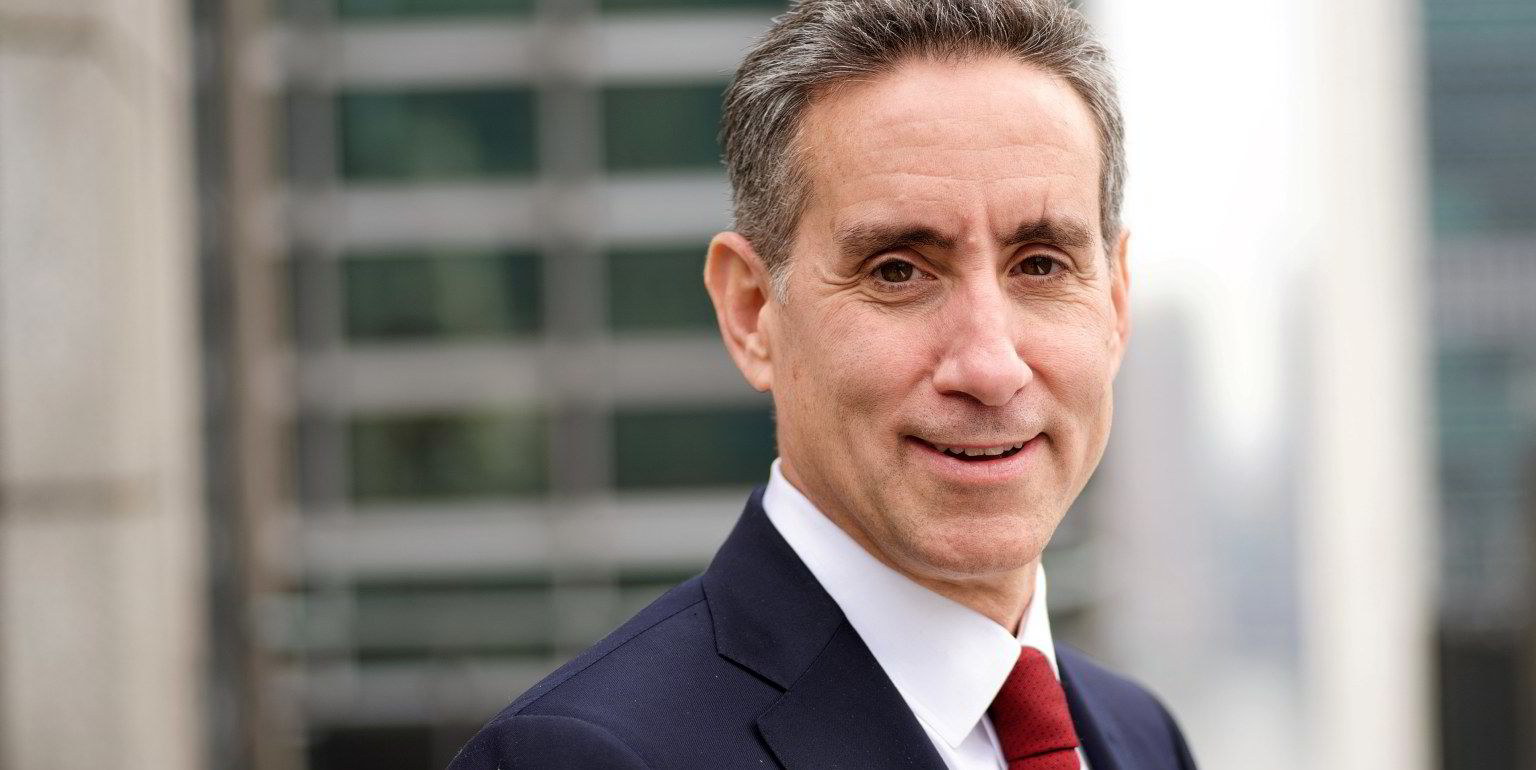
“It’s really an uncertain period,” he said. “We don’t know in what direction this is going to lead. Is it going to escalate into something bigger where shipping becomes more difficult? It could be good or bad.”
Apart from the markets themselves, Tusiani is likely to talk about the continuing role of shipbrokers in serving that business.
He is, after all, one of the few US shipbroking titans who managed to figure out a succession plan for his company.
It’s something that remains a challenge for some peers, especially as they face the greater resources wielded by publicly funded competitors across the Atlantic.
“I tried so many times over the years to merge, to buy other brokerage firms. It can’t be done, it’s almost impossible,” Tusiani said.
“The reason is that most brokers are their own bosses. They all work within their own spaces and let’s face it, we are all egotistical.
“When you combine the egos that are involved with the desire to be independent, it makes consolidation very difficult.”
Tusiani sees a path for some of these smaller houses to survive, particularly if they have more than a spot-market business to fall back on when markets sour.
“They may not be the same size that they’ve been, but the companies with a good forward book will be able to compete,” Tusiani said.
“It’s a people business and there will always be shipowners who are loyal to people. A lot of these firms are getting older, however. We found a solution that worked – I don’t know if others can do the same. Some are facing that dilemma right now.
“I found a solution at Poten by selling to the employees. They made me look smart. I was just a good salesman.”
